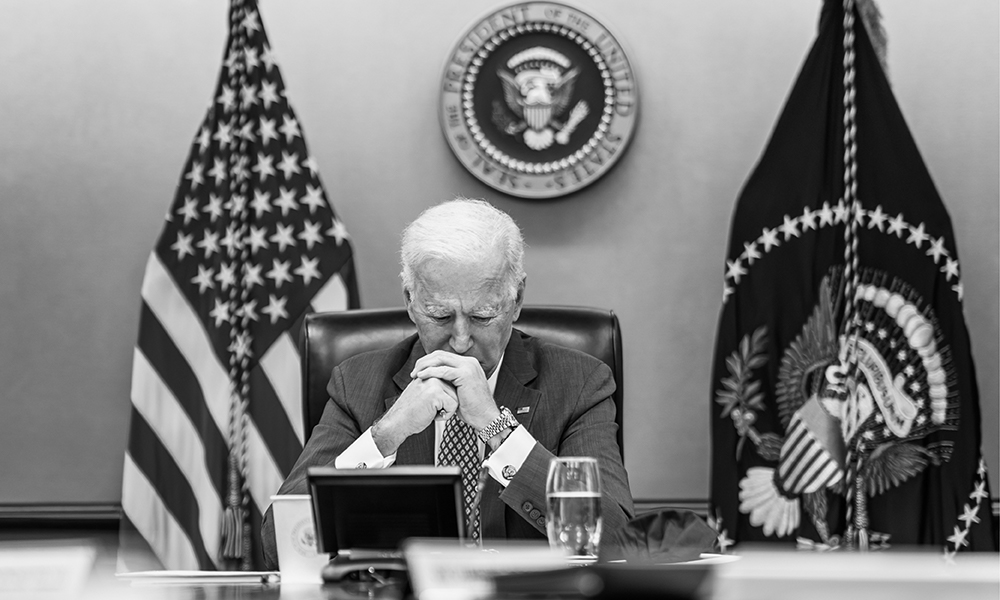Back to normal can be a blessing—as it is for a vaccinated public after
COVID-19. Back to normal can be a curse—as in a return to political polarization following a short moment of national unity during a war.
Or back to normal can be confusing, as it is for Israel’s relationship with President
Joe Biden after four years of Donald Trump and eight years of Barack Obama.
In May, Israel fought a short and fierce battle against Hamas in Gaza, following Hamas’s decision to launch rockets on civilians all over the country. The excuse for this cycle of violence is not as important as some observers made it seem. Hamas saw an opportunity—an expected controversial decision by the Supreme Court to confirm Jewish ownership of houses in East Jerusalem in which Palestinian families reside and used it as a pretext for flexing its muscles. Israel might have erred in handling this situation, but if it had not, Hamas would have searched for a window of opportunity and eventually launched a barrage of rockets. If not this year, then next year. If not to “defend Jerusalem,” then to defend something else.
For Israel, this short round of violence was a reminder that Hamas is still in Gaza and also that Trump is no longer the American president. Up until Gaza, the change in the White House did not feel concrete to most Israelis. Yes, they knew and were somewhat concerned that the U.S. was talking to Iran again about a nuclear deal. But generally, Biden was out of sight and out of mind. His plan, clearly, was to deal with things other than Israel. He did not invite Prime Minister Benjamin Netanyahu to visit him, appoint a special envoy to the Middle East, initiate a peace plan or negotiations or even send an ambassador to Jerusalem.
Hamas decided to test him. It forced him to show his cards. Over four years of Trump, the organization had seemed careful—maybe deterred by the great damage caused in the previous Israeli operation, Protective Edge, or maybe because Hamas knew that, under Trump, Israel was likely to get full American support for whatever war plan it deemed fit. Risking retaliation with Trump in the White House was dangerous. Risking retaliation with Biden in the White House was worth a test.
It was an interesting test to watch. And the result is—well, back to normal. Normal, that is, in the way America reacts to cycles of violence between Israel and its enemies.
What is normalcy? Let’s define it, somewhat vaguely, as the range of responses to Arab-Israeli violent eruptions seen from the Clinton administration through the second Bush administration. That range considers Israel as a close ally; accepts Israel’s need to defend its citizens; recognizes that this need cannot be fulfilled unless Israel is free to use force; recognizes also that the root cause of the conflict is Arab refusal to accept a Jewish Israel as a legitimate entity in the region; tries to balance all these concepts against the need to save human lives, and is somewhat suspicious about Israel’s long-term strategy concerning the fate of the Palestinians.
The last two presidents’ attitudes did not fall within this normal range. Obama wanted to have some distance from Israel. He was also more suspicious about Israel’s motivations and actions than most if not all previous presidents. Trump, on the other hand, bought Israel’s narrative of the conflict and its consequences. His peace plan went far beyond any previous president’s in its willingness to accept Israel’s demands. Many Israelis saw Obama as a menace, while viewing Trump as something resembling a messiah.
Enter Biden. What were his actions during the May violence? He postponed a UN Security Council meeting and rejected a resolution that would have denounced Israel as the villain. He did not criticize Israel in public, and when a ceasefire began, he declared that “until the region says unequivocally they acknowledge the right of Israel to exist as an independent Jewish state, there will be no peace.” Biden also demanded that Israel be cautious. He was displeased with some of its operational moves and called Netanyahu time and again to clarify that there is no blank check for a war as long and as bloody as Israel wishes it to be.
When a week passed and Israel was still bombing, Biden made his call for a ceasefire public. Netanyahu rejected the call, but Biden swallowed his pride and waited. Soon after, Israel stopped shooting.
Was that a good way to handle a delicate situation? It was certainly the normal American way. Jerusalem—frustrated by Obama, spoiled by Trump—got the message. Biden intends to move the needle of relations back to where it was under most presidents. If Israel does not become too greedy, that should be good enough.
Shmuel Rosner is a senior fellow at The Jewish People Policy Institute and a news analyst at Kan News TV.











